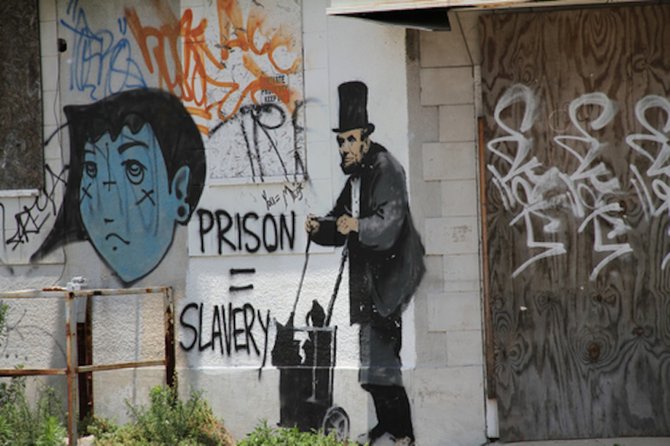"Gideon's Army sheds light on issues plaguing public defenders in the South. Photo by Courtesy Dawn Porter Trilogy Films
Dante encounters an inscription posted above the entrance that reads: “Abandon all hope, ye who enter here.”
“Gideon’s Army,” a documentary from director Dawn Porter released in January 2013, follows three young lawyers desperately clinging to hope as public defenders in the infernal criminal justice system of the American South.
Jonathan Rapping, president and founder of Gideon’s Promise (formerly called the Southern Public Defender Training Center), the nonprofit that inspired the film, calls it by another name—“hell.”
“Gideon’s Army,” nominated for an Emmy award, shows why the South, with its unique brand of hard, racially tinged notions of justice, is the most difficult place in the country to represent the poorest criminal defendants by taking viewers through Alabama, Georgia and Mississippi, which has the nation’s second-highest incarceration rate behind neighboring Louisiana.
In Mississippi, we encounter a Hinds County assistant public defender named June Hardwick. A Bolton native, Hardwick attended Murrah High School and Mississippi College School of Law in Jackson before becoming a public defender.
Hardwick is passionate, energetic and committed to her work, but she juggles a caseload of 150 defendants while being a single mom—all on a paltry salary, much of which goes to paying off a six-figure education debt. By the end of the film, Hardwick starts her own practice, where she continues representing indigent clients. Hardwick ran unsuccessfully for a seat on the Jackson City Council in 2013. Former Mayor Chokwe Lumumba appointed her to a municipal judgeship from which Mayor Tony Yarber dismissed her.
Every state is required to provide indigent-defense services, the result of a 1963 U.S. Supreme Court decision, Gideon v. Wainwright, which said legal counsel is a fundamental right. In some states, courts divvy up the caseloads among private attorneys and firms. In others, like Mississippi, each county is responsible for assigning public defenders. States comply with the law. The U.S. Justice Department’s Bureau of Justice Statistics says that the 50 states combined spent $2.2 billion on indigent defense in 2012, the most recent data available. Not only is that sum the lowest amount states spent in the five years the BJS studied, but it’s about one-third of the $6 billion that the states spent on prosecutors.
As an example of where governments place their priorities, consider Hardwick’s former employer, Hinds County, whose jail is already bursting at the seams and is the target of a federal investigation.
In May, county supervisors rejected a request from Hinds County Public Defender Michele Purvis Harris for salary increases for assistant public defenders. Supervisors cited budgetary constraints despite the fact that weeks earlier, the same board gave a $24,800 pay raise to just one prosecutor in the Hinds County District Attorney’s office.
In “Gideon’s Army,” Hardwick described the inequity as “disgusting.”
“How dare this system treat public defenders this way?” Hardwick asks.
In one of the film’s most wrenching scenes, Brandy Alexander counts out $3 in quarters at an Atlanta-area gas station, hoping the fuel will last two days, until payday.
“Gideon’s Army,” now available on Netflix, is the most honest portrayal of American public defenders to date. But it’s what remains unsaid that offers the most compelling argument for criminal-justice system reform. Public defenders are hard-working and well-educated. If life is hard for them, if there aren’t changes to the system, how much hope can their clients have?



Comments
Use the comment form below to begin a discussion about this content.